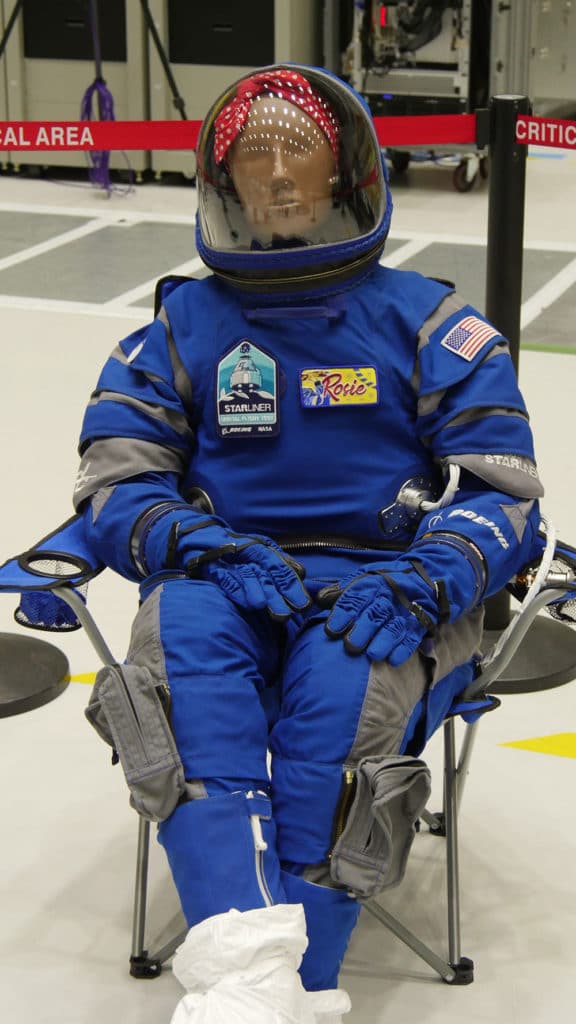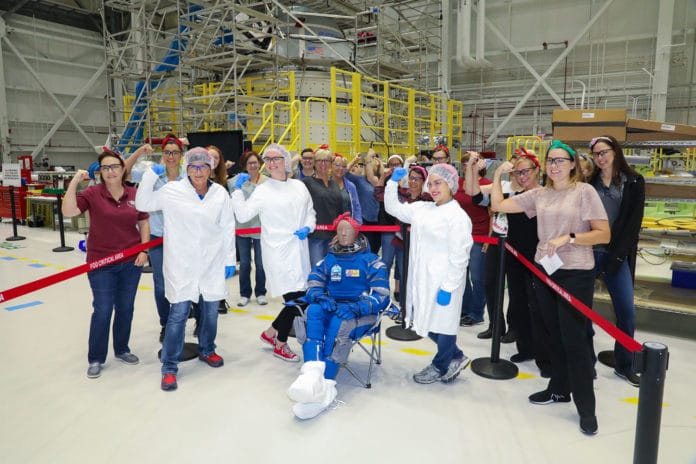Everything is ready in Florida for the launch of Boeing’s CST-100 Starliner spacecraft scheduled on Friday, December 20, 2019. The crew capsule will not yet carry crew members, but will only bring a mannequin Rosie the Astronaut, nicknamed “Rosie the Rocketeer” (named after 20th-century feminist icon Rosie the Riveter) by some, to the International Space Station with its Orbital Flight Test (OFT).
The crucial test mission will be a significant step toward Starliner, eventually carrying humans to space in the commercial vehicle. Boeing and SpaceX have been paid since 2014 by NASA to develop taxis for astronauts to provide round trips between the United States and the station (ISS).
The mission, which will start on Friday, will last eight days. CST-100 Starliner, of its official name, will be launched Friday from Cape Canaveral by an Atlas V rocket built by the United Launch Alliance. It will reach the station 25 hours later. Starliner will remain hitched for seven days before detaching. It will land at the end of a rapid four-hour descent into the New Mexico desert on December 28.

According to the Space.com report, the SpaceX capsule will be equipped with hundreds of sensors that will monitor, measure, and track critical data about its condition during the flight. This data will help teams back on Earth to determine what human astronauts might experience during their flights to ensure that the future Starliner crews have safe flights to and from space.
“Rosie is a symbol of not only the women who are blazing a trail in human spaceflight history but also of everyone who has shown grit and determination while working tirelessly to ensure the Starliner can transport astronauts safely to and from the International Space Station,” Leanne Caret, president of Boeing’s Defense, Space & Security division said. “She’s flying for everyone on our team who took on the challenge of human spaceflight and said, ‘We can do it.’”
NASA hopes to start sending astronauts in the first half of 2020, provided that the final tests are completed successfully. Since 2011, people on the ISS have been delivered exclusively by Russian manned spacecraft of the Russian Soyuz series. The corresponding contract between NASA and Roskosmos ends in 2020.
